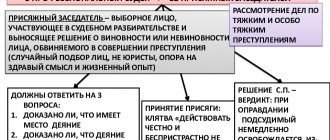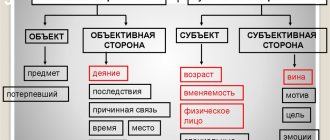- HUMAN, human, human. 1. adj. to people in 1 value “People say that it’s like a sea wave.” (last) Human race. Human ingratitude. To act humanly (as people should, adv.; the same as humanly). “The human race is sleeping deeply there... ... Ushakov’s Explanatory Dictionary
- The Human Menagerie, Morris D.. English zoologist Desmond Morris is the creator of films devoted to the behavior of humans and animals, the author of many scientific works and fascinating popular science books. "Human Menagerie",...
Human, human Dictionary of Russian synonyms. human see human Dictionary of synonyms of the Russian language. Practical guide. M.: Russian language. Z. E. Alexandrova ... Dictionary of synonyms
See people. Ozhegov's explanatory dictionary. S.I. Ozhegov, N.Yu. Shvedova. 1949 1992 ... Ozhegov's Explanatory Dictionary
I adj. 1. ratio with noun people I, associated with it 2. Peculiar to people [people I], characteristic of them. 3. Belonging to people [people I 1.]. 4. Consisting of people [people I 1.]. II adj. outdated 1. ratio with noun ... Modern explanatory dictionary of the Russian language Efremova
Human, human, human, human, human, human, human, human, human, human, human, human, human, human, human, human, human, human, human, human, human, human, human, human, human, human,... ... Forms of words
human
Why is “boyish” culture difficult to study?
It is important to understand that the street environment is not very accessible, and there are disappointingly few people you know. It can be difficult to get out there, especially for young people. I have made repeated attempts to come to other cities and do something from scratch, making connections via the Internet in advance. But the young people do not make contact - they simply run away in horror and screams.
At the same time, young people understanding themselves as a street community is a rather rare case, and the further it goes, the less common it is. In general, this is already a disappearing reality. I myself was born, raised and now live in the town of Lyubertsy near Moscow, my generation is about three years older than the main wave of the “Luber” movement. But we didn’t have groups. My classmates played football, played sports, spent time together, but there were no associations, no group street identity.
As a result of three expeditions to the small towns of the Kostroma region, no youth street communities were found either, except that local residents recalled that once upon a time groups were formed situationally - for example, in cases when non-resident students were brought into city dormitories in large numbers and showed aggressive behavior. towards the locals.
In general, the historical trend is that the number of territorial groupings is decreasing, and the number of interest groups is increasing. In addition, interest in sportiness and militarization is decreasing and the national factor is increasing compared to Soviet times. Another trend is the transition of “boys” games to the Internet, but this is a separate topic.
Category: Prison. Human - what does it mean? Today, many young people communicate in youth slang, but not everyone knows where certain words came from. In this article we will talk about such an interesting word as Human. However, before continuing, I would like to introduce you to a few more informative publications on the topic of prison jargon. For example, what does Na treason mean, how to understand Shkeritsya, who is Mokroschelka, what is Kidok, etc. So, let’s continue, what does Human mean?
This term was borrowed from the argot of thieves, and is a rather complex concept. In general, any thief and murderer understands perfectly well that he is not doing the right thing, not like a human being.
It seems like they also have an idea of human ideas and honor, and do not allow themselves to turn into animals. In general, the human always opposes the vile concepts, and the basis of the human is the thieves. Humanity is the desire for self-sacrifice, mutual understanding, sympathy, that is, all those feelings that ordinary citizens have. Key tags: prisoners. On treason - what does it mean? Ladder - what does it mean? Drive, Drive - what does it mean? Yalda, Elda - what does it mean? Shkeritsya - what does it mean?
Dry - what does it mean? Wet crack - what does it mean? By hairdryer - what does it mean? Extinguish, Extinguish - what does it mean? What is Kidok? Dear visitor, you have entered the site as an unregistered user. We recommend that you register or log into the site under your name.
Popular news Eating glass - what does it mean? Vinishko chan - what does it mean? Senpai, Senpai - what does it mean? Diver - what does it mean? Ofnik - what does it mean? Gachimuchi - translation and meaning Smoking bamboo - what does it mean? Omegaverse - what does it mean? Less than 3 - what does it mean? Sas - what does it mean? Kumao - what does it mean?
What is Kuni? Fucker, Fucker - what does it mean? Gleck - what does it mean? What does Explain for Shemot mean? Lil - what does it mean? Oppa - what does it mean? Lol Kek Cheburek - what does it mean? Fak - what does it mean? Orgasm - what does it mean? Loli - what does it mean? Celtic symbols - meaning What does AUE mean?
BlessRNG - what does it mean? Slang - what does it mean? Easy Pizi - what does it mean? Aish - what does it mean? BTS - what does it mean? Bae - what does it mean? Sayonara - what does it mean? Grime - what does it mean? Fast Flow - what does it mean? Kabe-don - what does it mean? Arrived in the destination country - what does it mean? Yunmin - what does it mean? Ahegao - what does it mean? Bitch - what does it mean? Chukhan - the meaning of the word Bring to white heat - the meaning of the phraseological unit?
Cum - what does it mean? Vegetable man - what does it mean? Chushka - what does it mean? Ahjusshi - what does it mean? Ueban - what does it mean? Give it to the fang - what does it mean? Chagiya, Chagi - what does it mean? Biba - what does it mean? Viguki - what does it mean? What does Khabalka mean?
All associations, without exception, have a fairly clear idea of a moral code. When you ask about this, they usually answer quite precisely, clearly, clearly and understandably. After the publication of my article about the moral code, I was accused of “idealizing gopniks.”
But beyond the moral code, there are plenty of ways to get around that moral code. That is, roughly speaking, it is forbidden everywhere to hit a guy walking with a girl, but if you ask around, many will remember cases when a guy walking with a girl was somehow offended. They may, for example, offend you and not tell your friends, because they won’t praise you. They may not attack: “A punk is walking with a girl - we surrounded them and said: take off your symbols. But we didn’t offend them.” Such moves are widespread, violence abounds, despite the existence of a moral code.
Among other things, there is a fairly standard pattern of the conflict: what is done, how and in what order. As a rule, there are seniors and juniors in a group. Sometimes there are three levels, at which there can also be a fairly clear distribution. Once I came across a rare case when the whole courtyard bullied a teenager because he was alone at his age. In the yard there were many people who were two years older than him and two years younger - both the elders and the younger ones bullied him, despite the fact that, in fact, there were no complaints against him.
The very first of the thieves in law was a “noble” bandit named Mishka Yaponchik. He went through the Civil War and became its hero. He was also a Soviet commander. He was sent to hard labor in 1908 due to a political article. He left there only in 1917 thanks to Kerensky's amnesty. Yaponchik returned with the title of “thief Ivan.”
The new title and almost ten years of experience in hard labor allowed Yaponchik to realize his ambitions. He created the first thieves' rifle regiment of convicts and thugs. Together with them, he managed to fight in Yakir’s division for Soviet power.
After the end of the Civil War, the “red” commander named Moses Vinnitsky with his specific law turned out to be unnecessary. The Jap was shot.
Nevertheless, certain people remembered him and, fifteen years later, created their own law of thieves.
There are seven main laws, but there are many derivatives from them. Thieves should not cooperate with any government structures. A self-respecting thief will not give evidence to either the investigative or judicial authorities. Such people will also not give sincere testimony and will not admit to the crime committed.
The thief has no property, just as he has no savings of his own, only the thieves’ common fund. Such people do not start a family.
A thief who lives by rules periodically goes to prison. And he shouldn't take up arms. These people don’t work—it’s not customary for them. Everything they need, they steal.
Thieves in law, while in prison, maintain order in their zones, monitor the peaceful resolution of disputes, resolve emerging conflicts, and prevent stabbings and lawlessness.
Thieves' concepts and laws
It is necessary to separate thieves' and prison laws. Prison concepts apply to all prisoners. Each caste has its own regulations and restrictions. Only those serving time for theft, that is, the highest caste of thieves, adhere to thieves' concepts. These include:
Have a question for a lawyer? Ask now, call and get a free consultation from leading lawyers in your city. We will answer your questions quickly and try to help with your specific case.
Telephone in Moscow and the Moscow region: +7
Phone in St. Petersburg and Leningrad region: +7
Free hotline throughout Russia: 8 (800) 301-39-20
- The requirement to be honest and decent among your own.
- Promote thieves' ideas and show solidarity with other thieves.
- Support other thieves.
- Maintain hierarchy in the community.
- Never cooperate with prison administration or law enforcement agencies.
- Do not testify or admit guilt even after conviction.
- Don't betray your cellmates.
- Attract new people to the thieves' environment.
- Don't engage in politics.
- Don't work.
- Do not have a residence permit.
- Agree with the recognition of the authority of a more experienced prisoner.
- Maintain relationships with other ex-prisoners.
- Do not go for conditional early repayment of the term.
In addition, thieves are required to:
- Prevent conflicts in prison.
- Don't have a family.
- Respect your parents.
- Don't swear.
- Play cards, but don't cheat.
- Don't rape.
It is important for the thief to strictly monitor compliance with these rules so as not to lose authority among other thieves.
How to live according to concepts?
It is necessary to clearly distinguish between true prison concepts and false concepts. The first is the prisoners' code of honor. They are also recognized by the prison administration, since they help maintain order in the zones.
False concepts are a way to grow in the eyes of other prisoners at the expense of someone. This method is usually used by inexperienced prisoners who have no real authority among the thieves.
When people say “live according to their concepts,” they usually mean the criminal thieves’ concepts. Negative “cop” concepts are rarely mentioned in the criminal community.
A person who adheres to human concepts is considered decent in the zone. Sometimes offended and morally degraded thieves are also judged by human standards.
Those who deliberately went against the concepts, and did not mistakenly violate them, are considered reptiles. In prison there is even a phrase “ask like a bastard” as opposed to “ask like a brother.”
“Demand from the bastards” occurs after certain actions on their part - theft from cellmates, snitching, lawlessness, provocation. The same will be asked of a prisoner who committed rape while free.
Such prisoners, who violated the rules consciously and purposefully, are usually released. Relegation to a lower caste deprives them of all rights.
"Watch your tongue"
In addition to thieves' laws, there are also prison laws, which many prisoners try to adhere to. For example, swearing behind bars is still considered bad manners. There are several reasons for this, according to experts in the criminal subculture. Firstly, the zone has its own criminal language - “Fenya”, which seasoned prisoners value very much. To prevent swearing from contaminating the “native” prison jargon, it is avoided in communication. Secondly, in the colonies it is very important to “watch your language”: any obscene word can hurt the feelings of a criminal and lead to a bloody conflict.
Basic Prison Concepts
It is very important to adhere to the concepts from the very beginning of life in prison. A newbie is not asked for them until all the important nuances of behavior are explained. And they explain them immediately after the prisoner gets into the cell.
The life of the cell in which the thieves sit is organized around the requirement to respect and not infringe on the interests of fellow inmates. You cannot use physical force, extort money or suppress personality.
In prison, the phrase “living by the rules” means following an unspoken code of conduct that allows you to maintain relationships between people and not violate the personal principles of prisoners.
Most of the concepts are based on common sense requirements of life - do not steal from other prisoners, do not insult, keep your word, etc.
But besides these principles, which do not differ from those in the wild, among prison concepts there are many that are incomprehensible to people who are not in prison.
Since the concepts are not officially spelled out, authoritative prisoners are involved in resolving controversial situations. With such a subjective analysis of conflicts, the decisions made by different people can vary significantly.
The reaction of prison administration to various conflicts also differs. In the event of a fight in a cell, when the conflict occurred between one of its most authoritative inhabitants and another thieve, everyone can be punished. Although, of course, the situation largely depends on the role of thieves in a particular zone. There are so-called red zones, where the administration controls everything, and there are black zones, where the administration does not interfere in the internal lives of prisoners. The criminal authorities decide everything there.
In a situation where a “rat” is beaten, that is, a prisoner who has stolen something from another prisoner, the participants in the fight will simply be placed in different cells.
In general, prison concepts are built around the personal freedom of the prisoner, provided that it does not interfere with the common good of all prisoners.
How to live according to concepts in prison?
As for the general prison laws, they differ from the thieves' laws, but are somewhat similar to them. Prison laws require:
- Give a share of the property to the common fund.
- Don't fight with thieves in law.
- Do not steal from other prisoners (do not rat).
- Don't accuse someone without proof of their guilt.
- Pay card debts on time.
- Respect elders.
These general concepts must be observed even by those who do not belong to the caste of thieves.
What is AUE?
This abbreviation is not uncommon on the walls of Russian cities, as well as on the bodies of young people. It stands for “the prisoner way of life is one.” This is a kind of subculture, the representatives of which are teenagers from 14 to 18 years old who adhere to the concepts of thieves, although they themselves have not been to prison. They give part of the money to the common fund. Typically, the ranks of the aueshniks are joined by teenagers from disadvantaged families who have connections with imprisoned or imprisoned adults.
Such teenagers are usually aggressive, ready for prison, and often dream of going to prison, and easily commit crimes. The very system of AUE rules was invented by thieves in law and distributed it among teenagers in Russian cities. They are given the idea that life is unfair and that thieves can teach a teenager how to become a worthy person who will enjoy authority. In return, they demand not only to comply with the concepts, but also to participate in the financing of the common fund. As a rule, such financing occurs through the commission of crimes.
Social networks are used to agitate teenagers, because it is no secret that in some prisons mobile phones are in use and there is access to the Internet, despite the official prohibitions of the administration. This is how thieves can recruit young supporters.
Today, the spread of AUE ideas has become a problem, because many teenagers, under their influence, commit real criminal crimes.
Epilogue
Life doesn't stop. It continues to flow... There are just certain prison concepts and laws. A book that would contain all the standards of conduct for prisoners has not yet been written. And it is unlikely that such a thing will ever appear.
Despite many nuances and amendments, camp life is still built on generally accepted principles: do not steal, do not inform, do not lie, do not violate established norms and the order of communication between prisoners.
Prison concepts and laws, advice from experienced prisoners are what help the convict adapt to prisons and camps. By following the established norms of behavior and communication, the “inmate” will be able to acquire a “strong rear” and “sidekicks” in the zone and will be in relative safety.
Also, by fulfilling all the “instructions”, a person (if he, of course, has such a desire) will be able to achieve certain “heights” in camp life and even enter the category of privileged prisoners.
Respecting prison concepts and laws, the advice of “authoritative” prisoners, a convict who ends up in prison will most likely be able to find his “brothers in misfortune” and will not become an outcast. And no matter how strange it may sound, “criminals are people too,” most of whom adhere to the rule: “in any situation you need to remain human.”
Human
-and I
,
-oh
.
He yearns for the amusements of the world, and shuns the rumors of men.
Pushkin, Poet.
The human race has been sleeping deeply there since the ninth century.
Lermontov, Dispute.
I heard the hubbub of people, the impatient whistles of steam locomotives.
Karpov, Shifted shores.
Peculiar, inherent in people.
[Murzavetskaya:] I rely on people's conscience.
A. Ostrovsky, Wolves and Sheep.
He understood and supported our faith in human courage.
Simonov, Vladimir Lugovskoy.
2.
outdated
Intended for housekeepers and servants.
The servants poured out of the people's huts and surrounded the young master.
Pushkin, Dubrovsky.
[Arina Petrovna] ate human cabbage soup with stale corned beef at home.
Saltykov-Shchedrin, Messrs. Golovlevs.
- [I] started having lunch in the people’s kitchen.
Chekhov, About love.
|| in meaning noun human
,
-oh
, well.
A room for janitors and servants in a master's or landowner's house.
When she [the nanny] was sent to the servants' quarters and was not even allowed to enter the house, she sneaked up to us at night, kissed us sleepily and cried.
S. Aksakov, Childhood years of Bagrov the grandson.
Everything was bustling in the yard, the fire was crackling in the kitchen, people were having lunch in the servants' room.
I. Goncharov, Break.
Small academic dictionary.
- M.: Institute of Russian Language of the USSR Academy of Sciences. Evgenieva A. P. 1957-1984. Synonyms
:
See what “human” is in other dictionaries:
- HUMAN, human, human. 1. adj. to people in 1 value “People say that it’s like a sea wave.” (last) Human race. Human ingratitude. To act humanly (as people should, adv.; the same as humanly). “The human race is sleeping deeply there... ... Ushakov’s Explanatory Dictionary
Human, human Dictionary of Russian synonyms. human see human Dictionary of synonyms of the Russian language. Practical guide. M.: Russian language. Z. E. Alexandrova ... Dictionary of synonyms
See people. Ozhegov's explanatory dictionary. S.I. Ozhegov, N.Yu. Shvedova. 1949 1992 ... Ozhegov's Explanatory Dictionary
I adj. 1. ratio with noun people I, associated with it 2. Peculiar to people [people I], characteristic of them. 3. Belonging to people [people I 1.]. 4. Consisting of people [people I 1.]. II adj. outdated 1. ratio with noun ... Modern explanatory dictionary of the Russian language Efremova
Human, human, human, human, human, human, human, human, human, human, human, human, human, human, human, human, human, human, human, human, human, human, human, human, human, human,... ... Forms of words
human
- human oh... Russian spelling dictionary
human
- ... Spelling dictionary of the Russian language
Aya, oh. 1. to People (1.L.; 1 digit). L. gen. Lie passions. L. life. It's a rumor. // Inherent, inherent in people. Lie hope. Lacking conscience. Oh joy. 2. Outdated Intended for housekeepers and servants. Lie at home. Good job. ◁ In human terms, adv. Colloquial... ... Encyclopedic Dictionary
human
- p/a, o/e. see also humanly 1) a) to people I 1) Human gender. Lie passions. Human life Lying rumor... Dictionary of many expressions
human
- adj. adamy halka nakha ... Russian-Ingush dictionary
human
- people / sk / oh ... Morpheme-spelling dictionary
Dictionary of slang terms used in everyday life
Prison jargon is varied and vast. A dictionary-translator of slang phrases, if there was one at all, would probably be as large as the Soviet Encyclopedia. As mentioned earlier, in the zone the jargon is updated daily with new words, in addition, knowledge of slang expressions is passed on from generation to generation, and many words are used even in everyday life. Below is a list of the most commonly used expressions and their meaning. The most basic thing that an ordinary person needs to understand if he encounters gopniks:
Who are the “goats”?
The next caste is the “goats”. It includes prisoners who, either voluntarily or by force, cooperate with the camp administration. They can hold the position of librarian, caretaker, zone commandant, that is, any position that actually exists in the state
This group includes persons serving a sentence either on their own initiative (for example, so that the administration writes in their personal file that the convict has taken the path of reform) or at the will of the colony administration. Thus, a prisoner can be persuaded, intimidated, or forced to work for the benefit of the prison administration.
It can be extremely difficult to refuse said work, so many prisoners can only accept their fate and follow the instructions of the colony authorities.
The rest of the convicts have a negative attitude towards representatives of this “caste”: they are considered certain “traitors”. And this is no coincidence, because many “goats” report to the prison administration about everything that happens among prisoners, that is, in their language, “knocking.”
“Goats” are not allowed to enter the “common fund”, but at the same time, other persons serving their sentences can greet them, talk to them, and touch them.
Boy's Rules
Boys in prison are called teenage thieves who learn from the experience of their older comrades.
In groups of boys it is customary to:
- Be responsible for your words (“for the market”).
- Show courage and not show cowardice.
- Be ready for a fight.
- Dress carefully.
- Defend territory.
- Don't be aggressive towards girls.
- Do not attack a stranger if he is walking with a girl.
- Don't rat out your friends.
- Always respect your mother.
- Fight only when there is a reason and always honestly, one on one.
It is important to perceive such concepts from life itself. They will not be voiced and will not be told to remember. A person entering a community of thieves for the first time needs to observe the behavior of its members in order to understand the essence of concepts in real behavior and everyday life.
About the title
This title is not available to everyone.
- First of all, a person communicates his intention to other representatives of this title.
- Thieves in law send news to all prisons and detention centers in Russia with the notification that such and such, with the nickname such and such, wants to become a thief in law. Anyone who can say something about the candidate, remember old sins, should do so.
- A potential thief in law needs to enlist the support of two thief in law with five years of experience. They will act as his guarantors.
Once the relevant persons have been properly notified, the meeting begins. They become thieves in law after the coronation.








